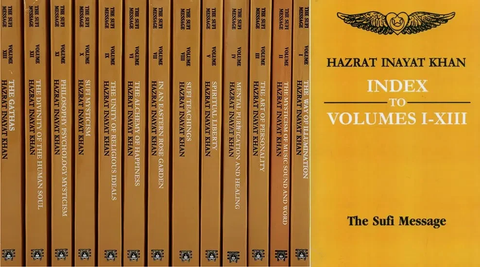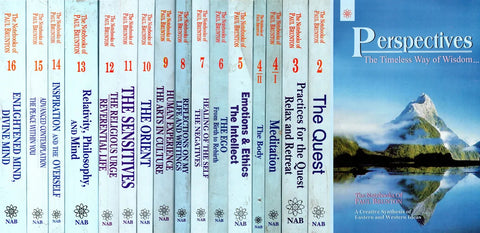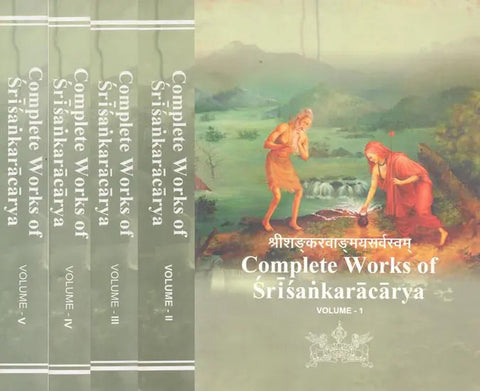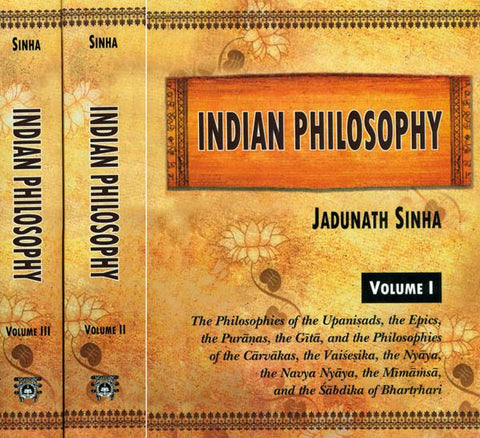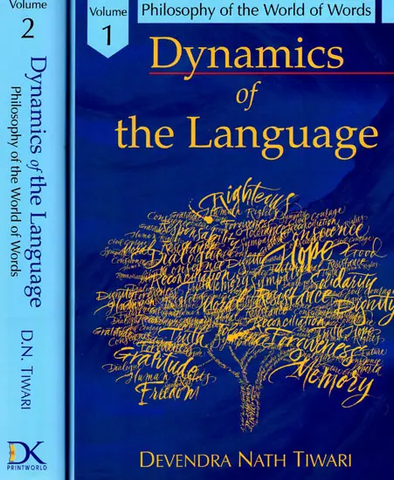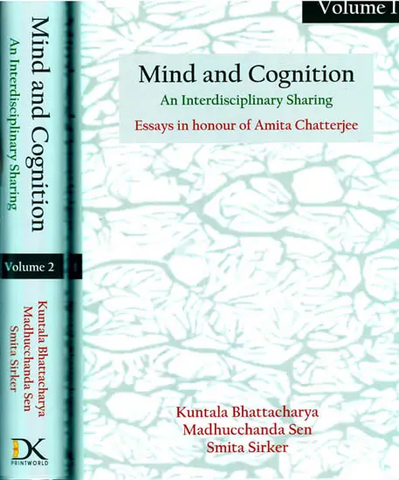Your cart is empty now.
Prameyakamalamartanda is an encyclopaedic work on Indian Philosophy. It is a treasure house of Indian rational thoughts. It not only elaborates Jaina rationale but also considers the opinions of all other systems of Indian philosophy. Prabhachandra systematically presents the Purva-paksa-views and gives thorough and authentic exposition of their views and this helps reader grasp the docrtine of those systems in a lucid and better way. By reading this single text one can master almost all related systems of Indian philsoophy. The present work on Indian philosophy in general and Jaina philosophy and logic in particular will be useful to every scholar in the field of Indian philosophy.
It is indeed a great pleasure that Indian Books Centre, is bringing out this reprint of Premeyakamala-Martanda of Prabhacandrasuri edited by Pandit Mahendra Kumar Sastri and published by Satyabhamabai Panduranga at Nirnayasagar Press, Bombay in the year 1941. This text has remained out of Print for long time. I am confident that scholars of Indian philosophy will be extremely happy to have this reprint
Premeyakamalamartanda is an encyclopadic work on Indian Philosophy. It is treasure house of Indian rational thoughts. It not only elaborate Jaina rationale but also considers the opinions of all others systems of Indian Philosophy. Prabhacandra systematically presents the Pnrvapaksa-views and gives thorough and authentic exposition of their views and this helps a reader grasp the doctrine of those systems in a lucid and better way. By reading this single text one can master almost all related systems of Indian Philosophy. This text has the character of that of the Nyayamanjari of Jayanta Bhatta. which is also an encyclopaedic work of Indian Philosophy.
If one simply puts glance at the contents of this text he will find it nothing but amazing. Right from the general definition of Prarnana. the nature of individual Praana’s, the nature of Sabda-dvaita of Bharthari, akhyativda Prasiddarthakhyativada, atmakhyativada, anirvacaiya-khyativada, smrtipramosa of Prabhakaras, Brahmadvaita, citradvaita, Sunyavada skarajnanavada of th Buddhists, Bhutacaitanyavada of the Caravakas, Sunyavada sakarajnanavada of the Buddhists, Bhutacaitanyavada of the Caravakas, Atmapratyaksatva, Pramanyavada, Nature of Sakti, Abhavavicara, Yogyata-vicara, sarvajnata-vada. Nature and role of God, nature of liberation, anekantavada, smrti-pramanyavada, anvitabhidhanavada, relations and fallacies, and a host of similar topics have been discussed here and time have been taken note of and thoroughly examined. This plan of presentation has made the text encyclopadic in character. After thoroughly examining the views of others, he establishes the jaina view. Thus, while discussing the nature of general definition Pramana, Prabhacandra considers Jayanta’s view of Samagri as Pramana and refuts it, Similarly he sets aside the aphovada of the Buddhist and
of Citridvnita. ' of tire rrturtrhiete ‘ emvtartuu Ntture afSakt.i. Ahhavavimm. Yogyara-viwa. Sarvajllatawada. Nature and tore
relations and fallacies. and a host of similar topics have been discussed here and hundred of other theories held by other systems. In the history of development of Indian Philosophical though! the era upto Udayana has been a golden era. The respective systems reached their peaks and all this happened because of the freedom of thought and speech granted to them.Every system enjoyed the freedom of severely criticising other‘s views. But the criticism was never aimed at mere criticism, but it was always directed towards arriving at the truth.
As a matter of fact.it was this healthy culture of constructive criticism and freedom of speech that enriched indian thought and gave solid basis to each philosophical system of that time. Unorganised thoughts got organised and what looked irrational become rational.
Had there not been Buddhist and Jaina logicians and the Caravakas. the Brahmanical system of philosophy could not have reached the height which they reached. Theentire Pracina Nyaya is a development caused hy the free dialogue between the Naiyayikas and the Nastikas. The Brahmanical system were left with no other altemative than to give solid gounds for their philosophical and metaphysical assumptions.
The prameyakamalamartanda,. is a specimen of the survey of that healthy tradition. It has involved the Nyaya System, the Mimamsa system.the Buddhist system, the philosophy of Bhartrhari, the Advaitins and the Samkhyas. It has references to almost all the prominent philosophical literature available at that time. At times, we find direct quolalions from a number of texts. While discussing relations, Prabhztcandra has quoted twenty two verses from the Sambandhapariksa of Dharma and has added his own commentary to them.‘ I have translated these verses along with the Commentary of prabhacandra and it has appeared in my work The Philosophy of Relations, published by Indian Books: Centre, Delhi, published
in 1990, in their Sri Garib Dass Oriental series. Dharmakirti’s Sambandhapadksa is thus, presented in the Premeyakamlamartanda,, which was otherwise lost in original Sanskrit such is the imponance of this reprint
The editor Pandit Mahendia Kumar Sastri. has given a very elaborate and infonnalory introduction to the text in Hindi. I have extensively used that introduction for writing this foreword. The editor has supplied studied grounds for the date of Prabhacandra 990 and 1020 AD. The editor has also shown the relationship of Prabhacandra with his predecesors and contemporary Philosophers and the access of the author of Prameyakamalamartanda, to the sanskrit Literature available at his time through the indentification of the quotations is well demonstrated.
The Hindi introduction is indeed very much iniornlafive. Thus, the Indian Books Centre unreservedly deserves our appreciation for bringing out the reprint of this excellent text on Indin Philosophy in general and Jaina Philosophy and logic in particular. Every scholar in the field should have a copy of this text in his library.
Sample Pages
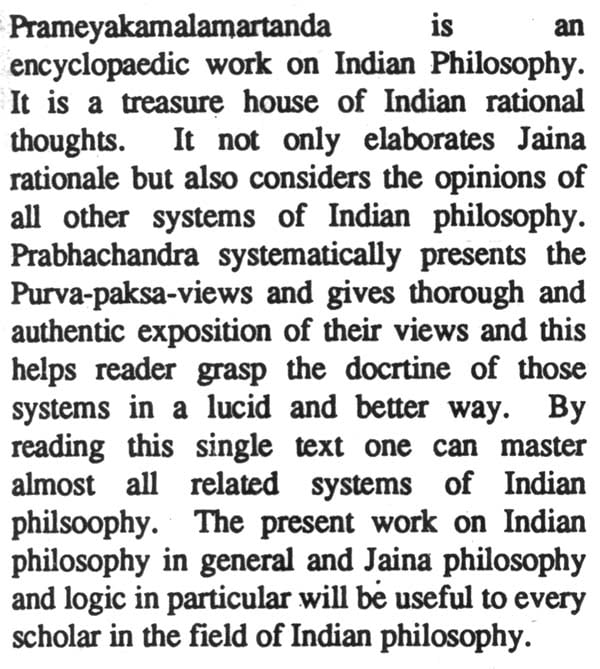
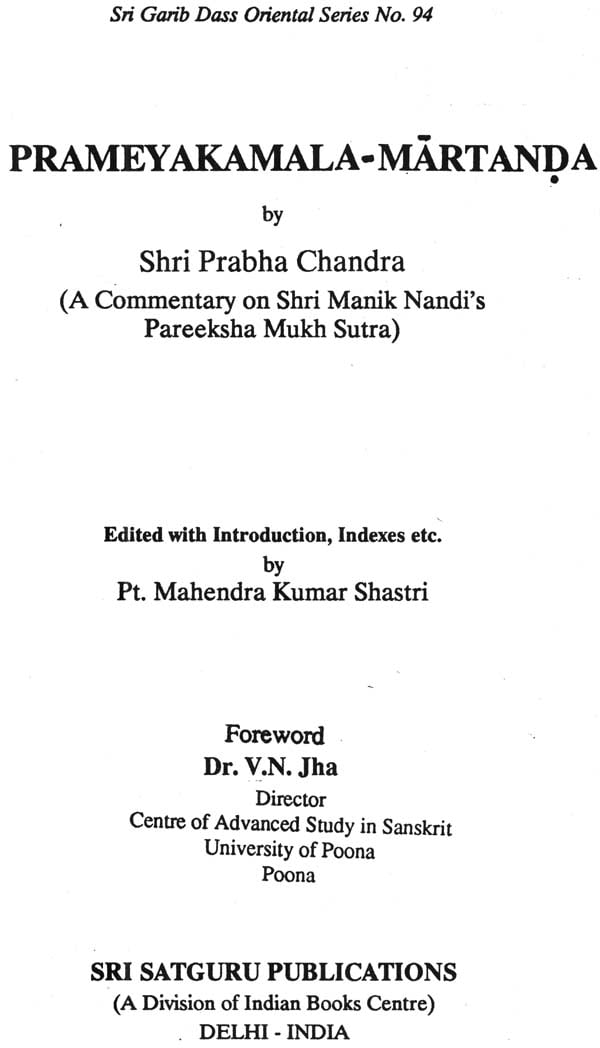
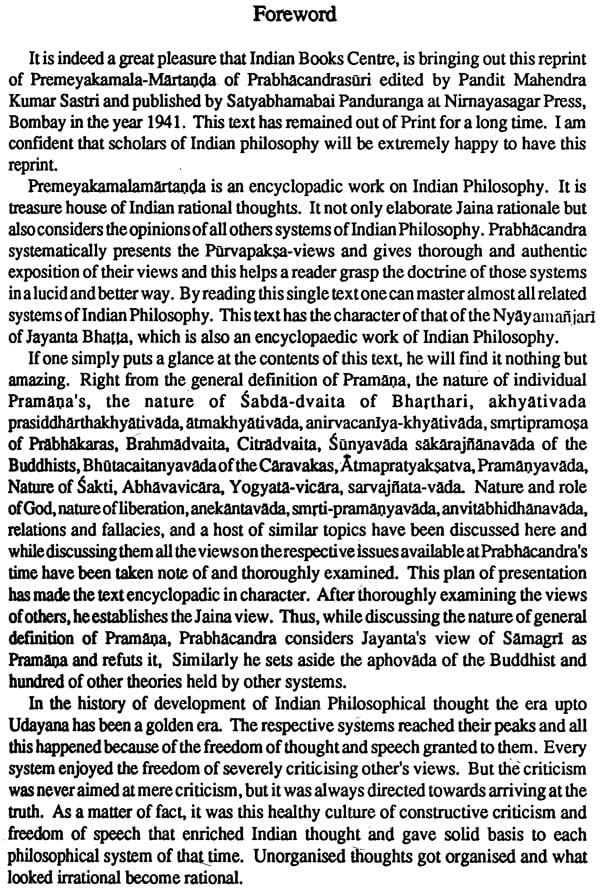
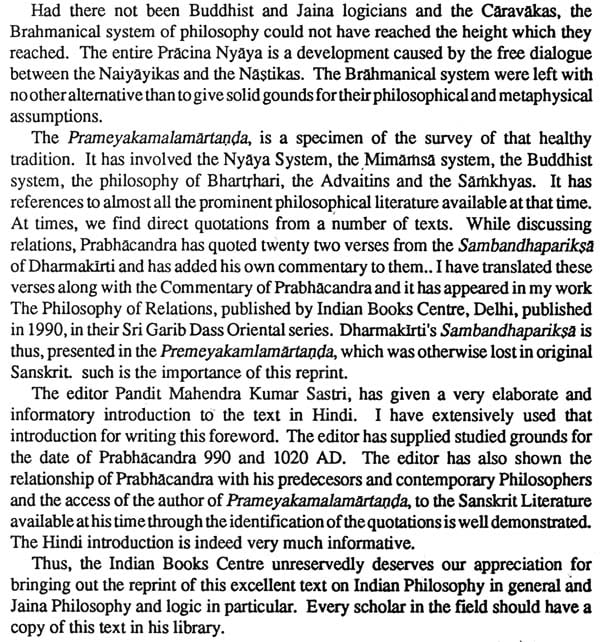

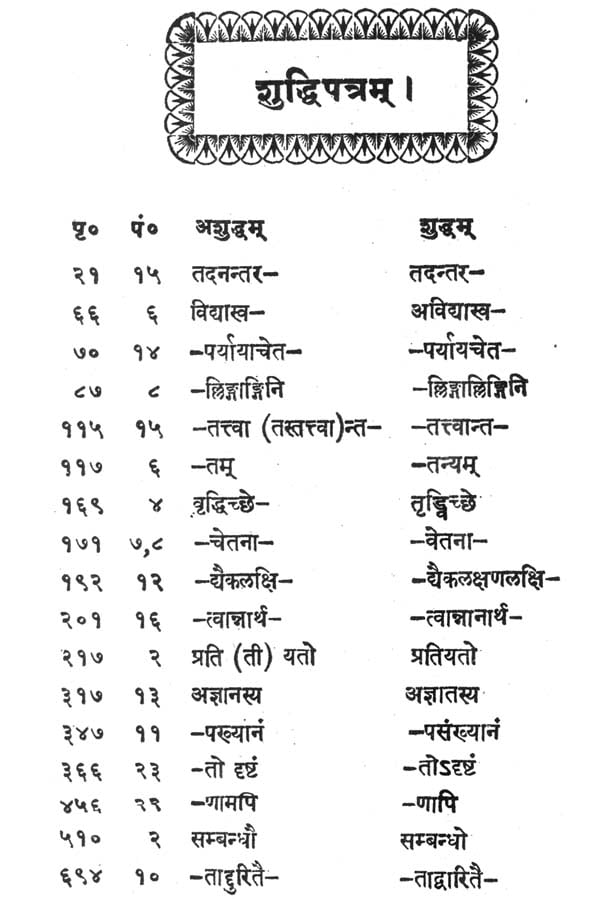

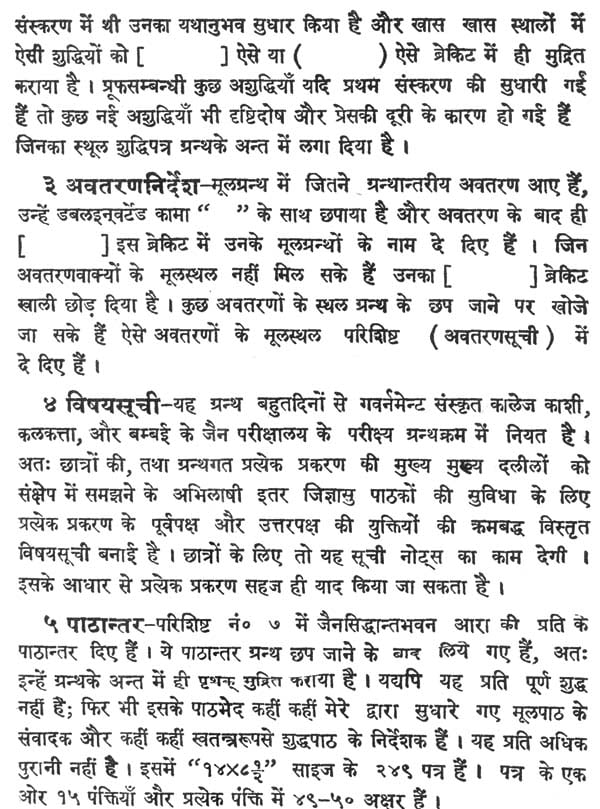
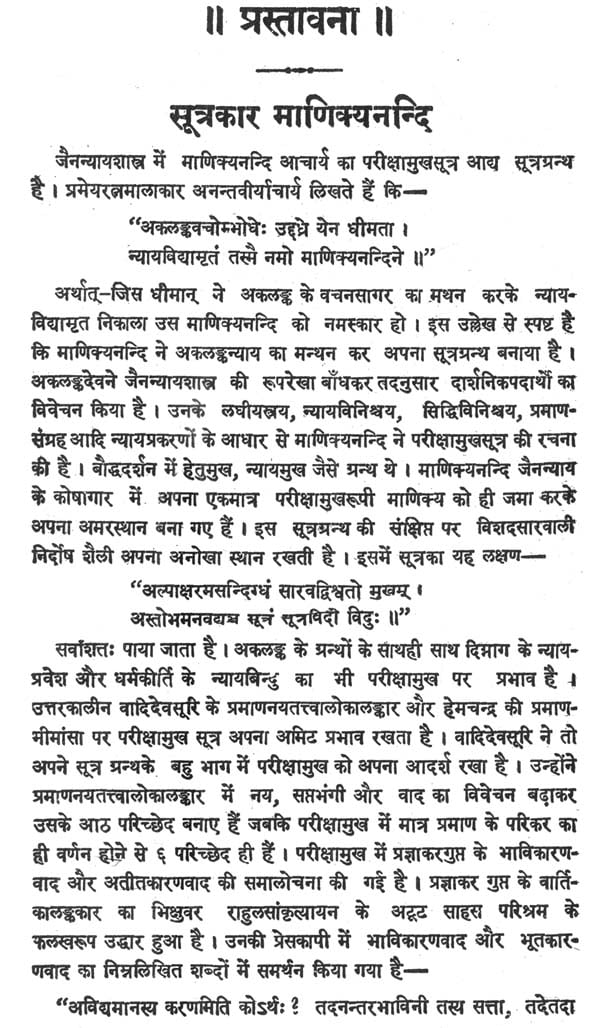
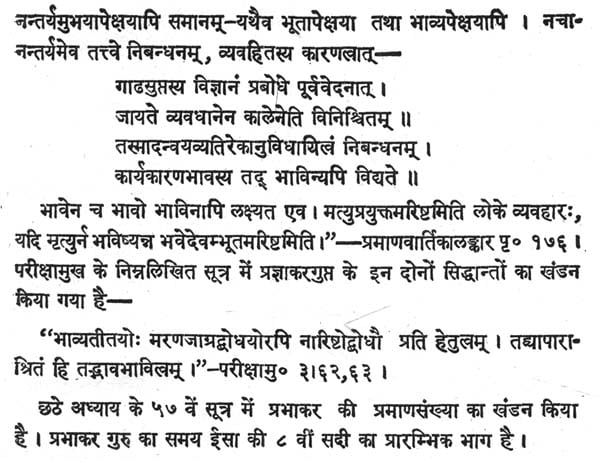
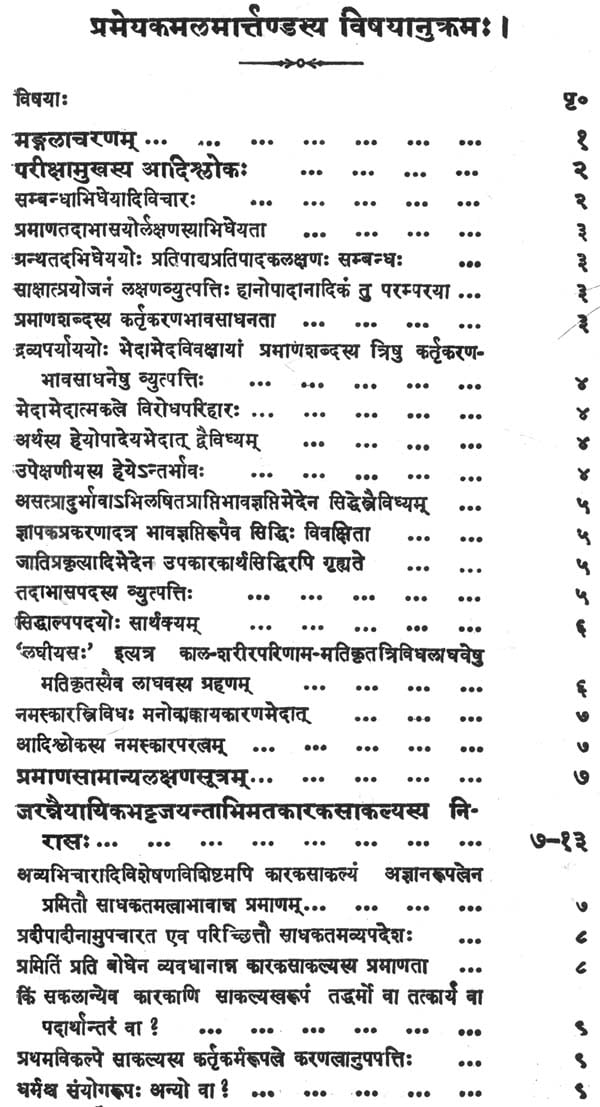
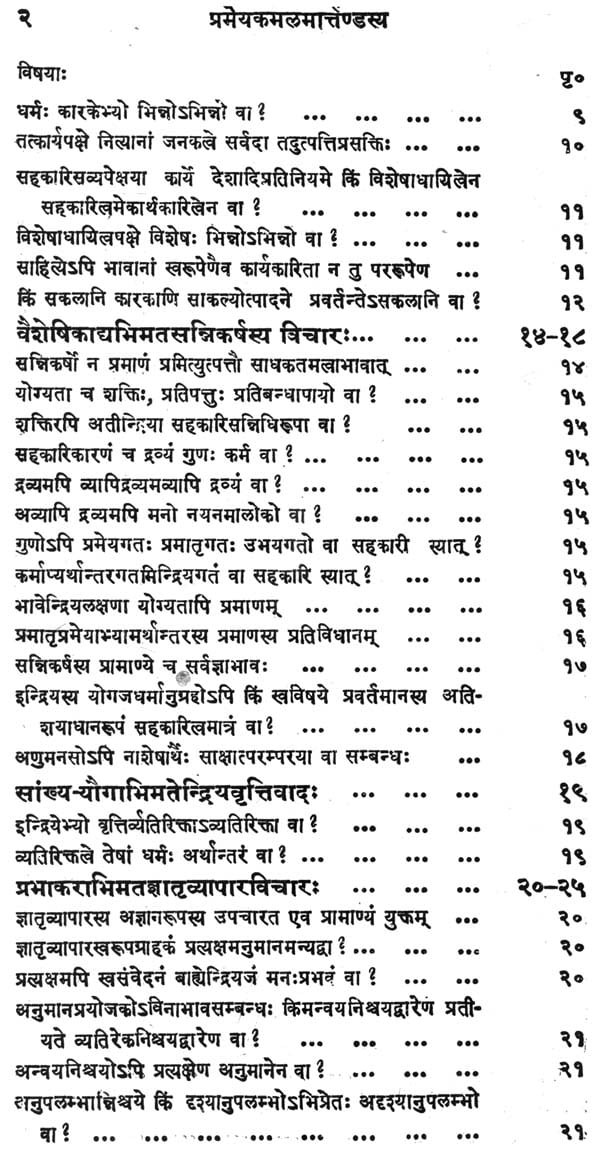
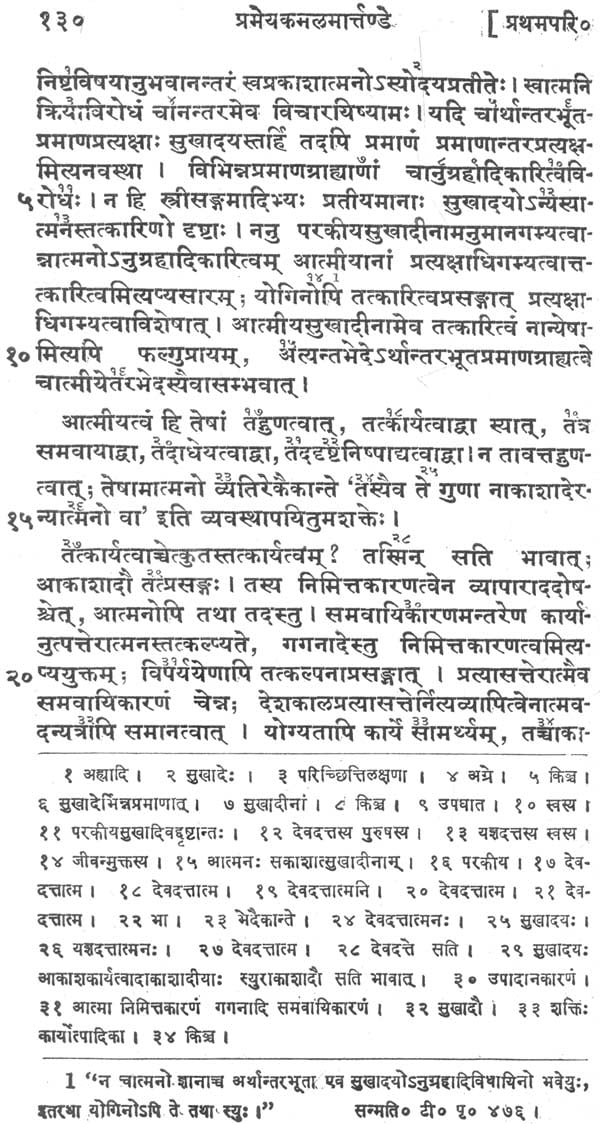
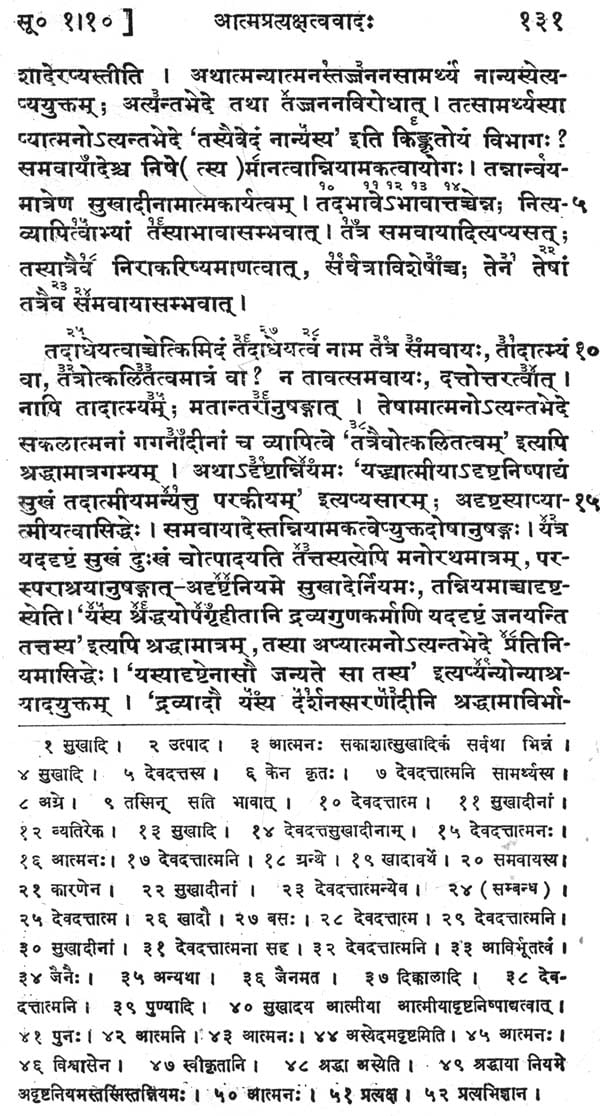
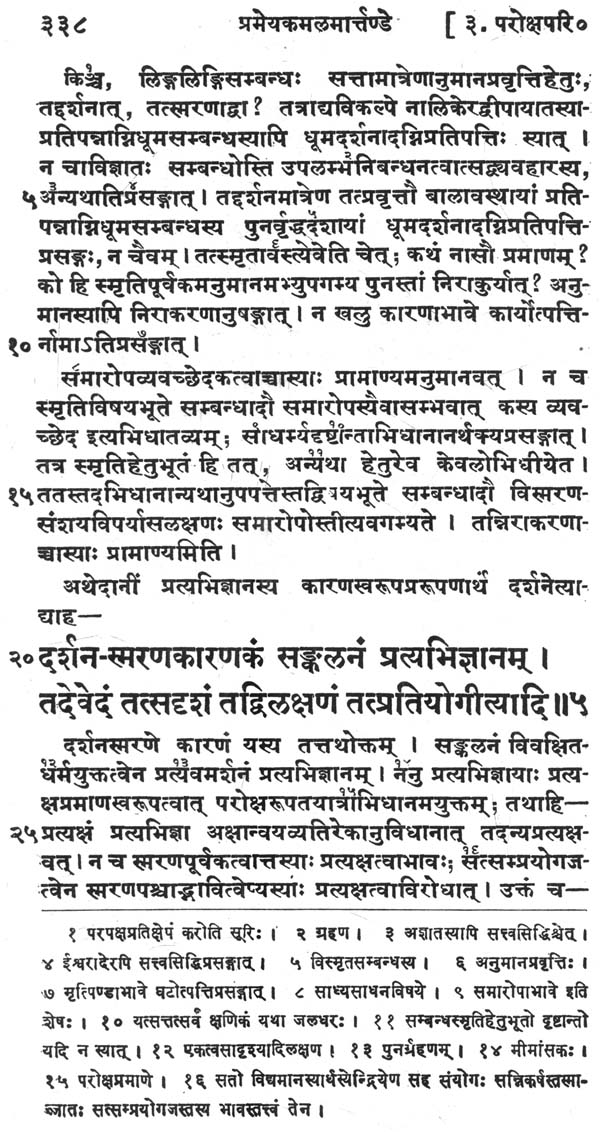

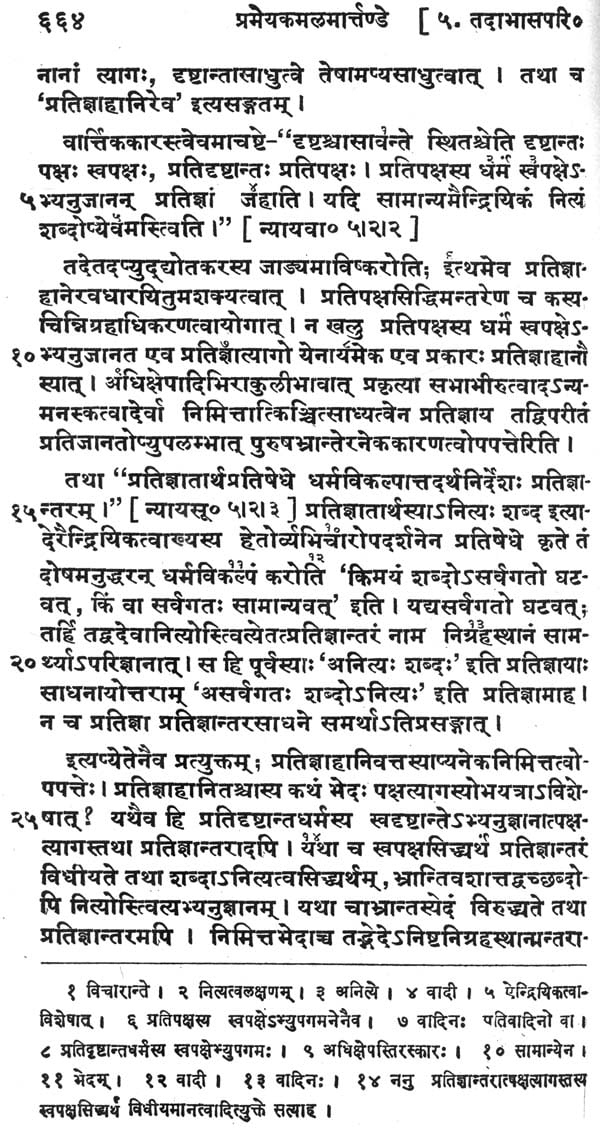
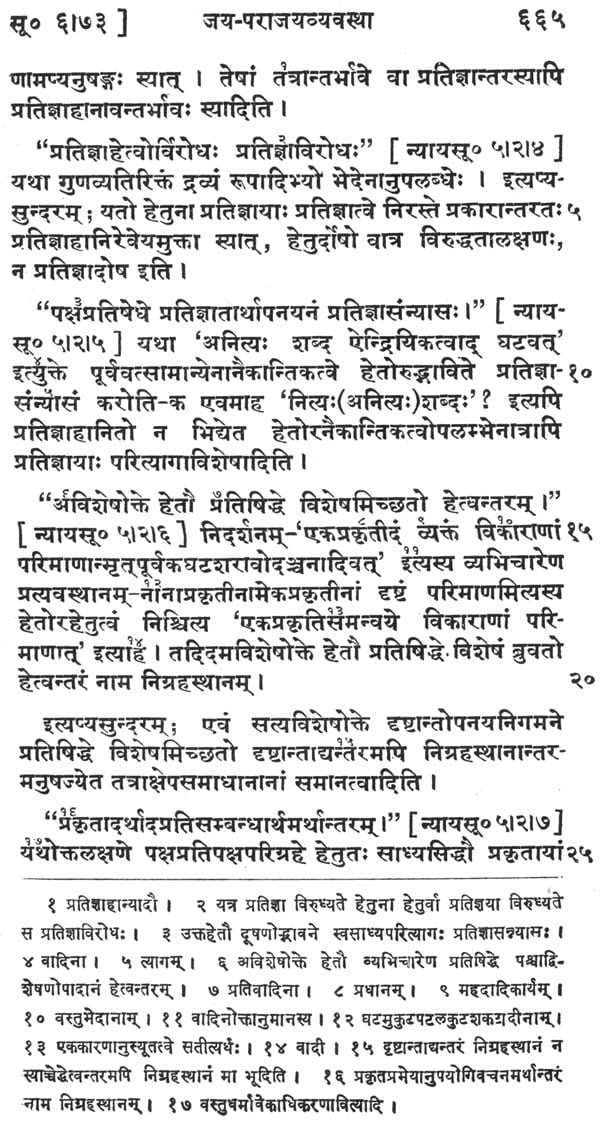
Delivery and Shipping Policy
- INTERNATIONAL SHIPPING
- Rs.1000-1100/kg
- ESTD. Delivery Time: 2-3 weeks (depending on location)
- Bubble Wrapped with Extra Padding
- NATIONAL SHIPPING
- NCR: Rs. 30/half kg
- Standard: Rs. 80/half kg
- Express shipments also available on Request
- ESTD. Delivery Time: Ranging from 1-4 days up to 7 business days (Depending on your choice of Delivery)
- TRACKING
- All orders; national or international, will be provided with a Tracking ID to check the status of their respective orders
- Depending on the Shipping Service, Tracking ID may be used on their respective tracking portals
Frequently Asked Questions (FAQs)
Domestic Shipping: 3-4 Days (after shipping)
International Shipping: 1-2 weeks (based on your location)
You will receive an email once your order has been shipped or you can email us if you didn't receive tracking details (info@mlbd.co.in)
Every book that we sell is the latest edition except all the rare books
Yes, we do provide free shipping, only on domestic orders (within India) above Rs.1500


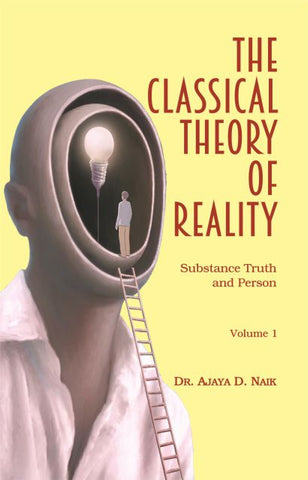
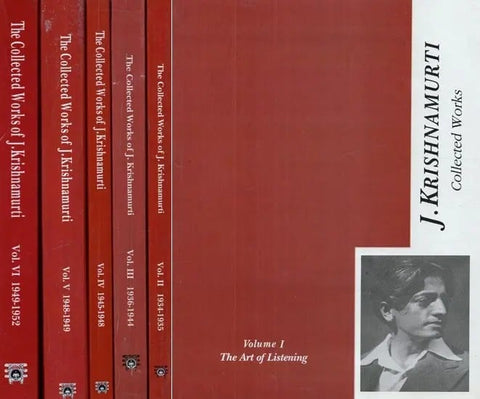

![A HISTORY OF INDIAN PHILOSOPHY [5 VOLUMES] by Surendranath Dasgupta](http://www.motilalbanarsidass.com/cdn/shop/products/HISTORYOFINDIANPHILOSOPHY_large.jpg?v=1675238163)
